Bern’s Einstein year reaches its zenith
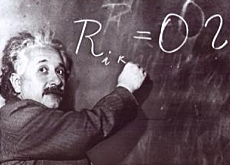
On International Physics Day, the Swiss capital, Bern, is marking the high point of a week of meetings and events celebrating Albert Einstein’s achievements.
Scientists are focusing on Einstein’s influence on contemporary research, while the public is getting a taste of his physics.
More than 500 people took part in Saturday’s special official commemoration of Einstein’s “miracle year”- 1905 – when he produced much of his most important and famous work in Bern.
Among the guests attending the high point of the centenary events, hosted by President Samuel Schmid, were the most recent Swiss Nobel Prize laureates, including Heinrich Rohrer and Kurt Wüthrich.
During the celebrations, Murray Gell-Mann received the Einstein medal, awarded since 1979 by Bern’s Albert Einstein society. The American physicist won the 1969 Nobel Prize for “his contributions and discoveries concerning the classification of elementary particles and their interactions”.
Martin Huber, president of the European Physical Society, says this type of event is important to remind people of the relevance of physics to contemporary culture.
“How we understand nature and the Universe relies on physics, and if we did not have physics our culture would be much poorer,” he told swissino. “Unfortunately, culture as most people understand it does not include physics.
“If you go to a dinner and you don’t know Goethe’s birthday, you are considered ignorant. But is considered acceptable to admit you understand nothing about quantum physics or relativity and that’s something we need to change.”
Beyond Einstein
Saturday’s ceremony comes after science historians spent two days looking at the genesis of Einstein’s groundbreaking theories, in the context of the social environment of the time.
Scientists are also gathering in Bern on Monday for the Physical Society’s 13th congress. But instead of looking back at Einstein’s work, they will be considering its implications for their research now and in the future.
The results of three of Einstein’s most famous papers, on the nature of light, relativity and the existence of atoms, will serve as the basis for discussions.
“The centenary of Einstein’s miracle year was the perfect opportunity to look at progress in physics in those areas where he made his breakthroughs,” added Huber.
But even the 20th-century’s most famous scientist is not regarded as infallible. “Einstein rewrote physics in 1905 and a century later, we want to look beyond what he did,” said Huber.
“We are now entering a time when we are questioning Einstein’s assumptions, because some of them don’t always fit with what we observe.”
Physics Night
Amid the scientific enthusiasm generated by the centenary of the miracle year, the public has not been forgotten. A special “Physics Night” has been organised at Bern’s Historical Museum on Saturday, with presentations about the impact of physics on people’s lives.
The museum is already hosting the biggest ever Einstein exhibition, about the life, times and research of the scientist.
Along with various entertainers, specialists such as Switzerland’s only astronaut, Claude Nicollier, will be on hand to explain how Einstein’s work has influenced our understanding of the world and the Universe.
An open day on Friday, organised by the Swiss Academy of Sciences and the Swiss Physical Society, will conclude the week’s events.
Young scientists will answer questions from the public live from their workplace via video feeds and find out just what motivates Einstein’s young successors today.
swissinfo, Scott Capper
The World Year of Physics is celebrating the 100th anniversary of Einstein’s miracle year while raising public awareness of physics.
Physicists are warning that the general public’s knowledge of physics and its impact on our culture is declining.
Globally, the number of physics students has also declined dramatically.
The international physics community wants to share its visions and convictions with politicians and the public at large, saying that their field will be essential to solving global problems such as energy production, environmental protection and public health.

In compliance with the JTI standards
More: SWI swissinfo.ch certified by the Journalism Trust Initiative
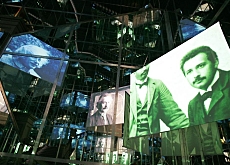
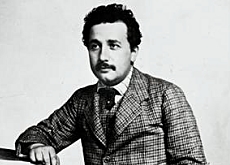
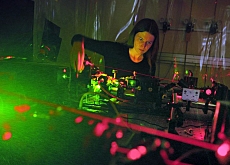
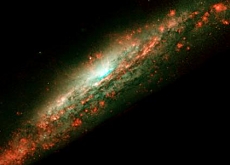
You can find an overview of ongoing debates with our journalists here. Please join us!
If you want to start a conversation about a topic raised in this article or want to report factual errors, email us at english@swissinfo.ch.